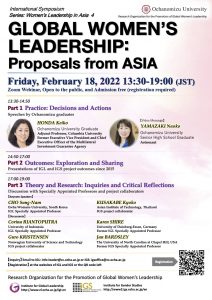 2022. 2.18 International Symposium “Global Women’s Leadership: Proposals from Asia”
2022. 2.18 International Symposium “Global Women’s Leadership: Proposals from Asia”
Series: Women’s Leadership in Asia 4
Almost seven years ago, the Ochanomizu University established the Research Organization for the Promotion of Global Women’s Leadership (GWL) in April 2015. Aimed at presenting our achievements in research and educational activities since 2015, we are hosting an international symposium entitled “Global Women’s Leadership: Proposals from Asia.” Coincidentally, this is the last symposium in the 2021 symposia series of “Women’s Leadership in Asia.” This symposium comprises presentations of the educational programs and research findings by the scholars belonging to the Institute for Global Leadership (IGL) and the Institute for Gender Studies (IGS), both housed under the GWL. Based on these findings, we will discuss women’s leadership in Asia from global and diverse perspectives. In addition to those scholarly debates, we will hear perspectives on women’s leadership from women leaders in Asia, who are Ochanomizu graduates active on the global stage.
Co-organized by the IGL and the IGS, this symposium will offer participants the opportunity to learn through stimulating discourses and exploratory debates that criticize the celebration of the superficial diversification of leadership. The symposium attempts to transcend gender stereotypes and undertakes the university’s aim of developing future women leaders. We hope you will join our discussions to develop the concepts of women’s leadership.
| Date | Friday, February 18, 2022, 13:30-19:00 (JST & KST), 11:30-17:00 (WIB & ICT), 5:30-11:00 (CET), 23:30 [Feb. 17th]- 5:00 [Feb. 18th] (EST) |
| Venue | Zoom Webinar (Prior registration required) Registration is here. |
| Language | English and Japanese with simultaneous interpreting |
| Audience | Open to the public |
| Organizer | Research Organization for the Promotion of Global Women’s Leadership, Ochanomizu University [Institute for Global Leadership (IGL) and Institute for Gender Studies (IGS)] |
| Inquiry | IGS: igsoffice@cc.ocha.ac.jp |
Program
| Opening (13:30-13:40) |
| MC: HOGETSU Rie (IGL Project Lecturer) Opening remarks: SASAKI Yasuko Ochanomizu University President |
| Part 1 Practice: Decisions and Actions (13:40-14:40) |
|
《Speeches by Ochanomizu Graduates》 HONDA Keiko (Adjunct Professor, Columbia University/Former Executive Vice President and Chief Executive Officer of the Multilateral Investment Guarantee Agency) [Ochanomizu University Graduate] YAMAZAKI Naoko (Astronaut) [Ochanomizu University Senior High School Graduate]【Video Message】 |
| Break (14:40-14:50) |
| Part 2 Outcomes: Exploration and Sharing (14:50-16:40) |
|
《Presentations of IGL and IGS project outcomes since 2015》 Facilitator Presenters |
| Break (16:40-17:00) |
| Part 3 Theory and Research: Inquiries and Critical Reflections (17:00-19:00) |
|
《Discussion with Specially Appointed Professors and project Collaborators》 Keynote Speakers Discussants Moderator: OHASHI Fumie (IGS Associate Professor) Closing Remarks: TOTANI Yoko |
《Speakers》
Part 1
|
HONDA Keiko (Speech in the Part 1)
Keiko Honda is Adjunct Professor and Adjunct Senior Research Scholar of Columbia University’s School of International and Public Affairs, where she teaches ESG Investing to graduate students. Honda also serves as a board member of Mitsubishi UFJ Financial Group and AGC (ex Asahi Glass), a member of the United Nation’s Investment Management Committee, a member of Singapore’s the Asia Sustainable Infrastructure Advisory Panel and a member of Japanese Financial Services Agency’s Policy Assessment Committee. Until 2019, She was the CEO of the Multilateral Investment Guarantee Agency (MIGA), the political risk insurance and credit enhancement arm of the World Bank Group. MIGA supports cross-border equity investors and lenders by providing coverage against political risk and non-honoring of financial obligations. Before joining MIGA, Honda was the first woman Senior Partner in Asia at McKinsey & Company, where she advised clients on corporate finance and strategy and business development for 24 years. Honda received the Joseph Wharton Social Award from the Wharton New York Club in 2020. Honda holds a bachelor’s degree from Ochanomizu University and an MBA from the University of Pennsylvania’s Wharton School, where she was selected as a Fulbright Scholar. YAMAZAKI Naoko (Video message in the Part1)
Naoko Yamazaki is Astronaut. She earned a Master of Engineering degree majored in Aerospace Engineering from the University of Tokyo in 1996, then started working for current Japan Aerospace Exploration Agency (JAXA). In 1999, she was selected as an astronaut candidate and was qualified as a Soyuz-TMA Flight Engineer in 2004 and NASA Mission Specialist in 2006. On April 5, 2010 Yamazaki was onboard Space Shuttle Discovery on the crew of STS-131, an assembly & resupply mission to the International Space Station. After retiring from JAXA in 2011, Yamazaki has been serving as a member of the Committee on National Space Policy, the Cabinet Office of Japan, and devoting herself to space education as a president of Young Astronaut Club and a chairperson of “Sorajo (women in aerospace)” under Japanese Rocket Society. Yamazaki co-founded Space Port Japan Association in 2018 and is serving as its representative director. Yamazaki also joined in Council of the Earthshot Prize in 2020 to inspire a decade of action to repair the planet. Rie HOGETSU (MC in the Part1) |
Part 2
|
IGL Makoto KOBAYASHI (Speech in the Part 2)
Akie NAITO (Speech in the Part 2)
Rie OKAMURA (Speech in the Part 2)
IGS Yoko TOTANI (Speech in the Part 2) Ki-young SHIN (Speech in the Part 2) Yukari SEMBA (Speech in the Part 2) Keiko HIRANO (Speech in the Part 2) Fumie OHASHI (MC in the Part2) |



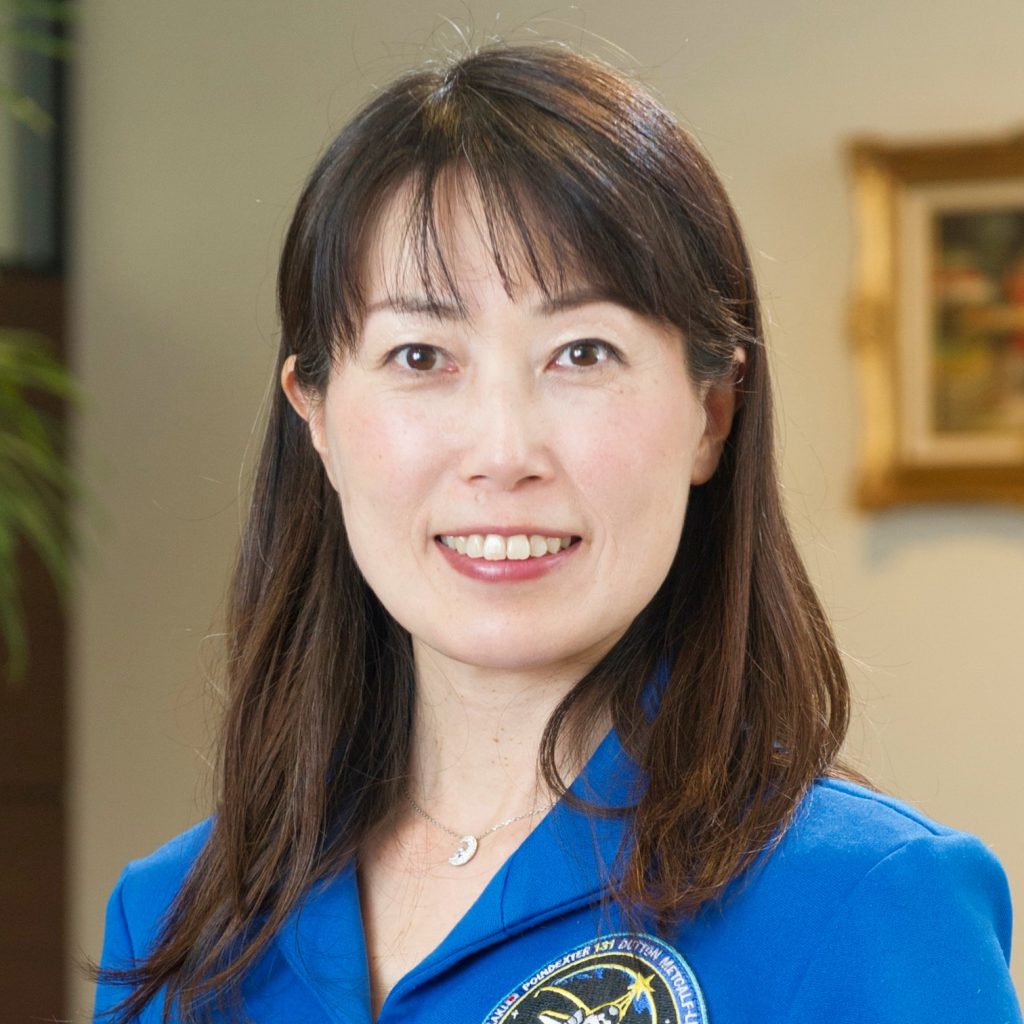
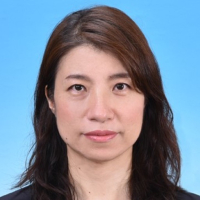 Rie Hogetsu is Project Lecturer at the Institute for Global Leadership, Ochanomizu University. Dr. Hogetsu is a medical sociologist, and her research focuses on health, professions, and family in modern Japan. She has published a book, Kindai Nihon niokeru Eisei no Tenkai to Juyō (Tōhisndō, 2010), as well as journal articles and book chapters.
Rie Hogetsu is Project Lecturer at the Institute for Global Leadership, Ochanomizu University. Dr. Hogetsu is a medical sociologist, and her research focuses on health, professions, and family in modern Japan. She has published a book, Kindai Nihon niokeru Eisei no Tenkai to Juyō (Tōhisndō, 2010), as well as journal articles and book chapters.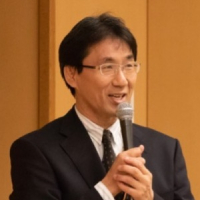 Makoto KOBAYASHI is Professor at the Graduate School of Humanities and Sciences and Director of the Institute for Global Leadership at Ochanomizu University. His specialty is Political Science, Peace Studies, and International Relations. He has investigated social formation of the state in the era of globalization, especially putting focus on the concept of political power, public-private relation and the control of violence.
Makoto KOBAYASHI is Professor at the Graduate School of Humanities and Sciences and Director of the Institute for Global Leadership at Ochanomizu University. His specialty is Political Science, Peace Studies, and International Relations. He has investigated social formation of the state in the era of globalization, especially putting focus on the concept of political power, public-private relation and the control of violence.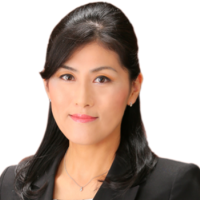 Dr. Akie NAITO is Project Lecturer at the Institute for Global Leadership at Ochanomizu University. She is in charge of the development of an index to measure the effect of leadership education and teaches classes to improve students’ leadership skills.
Dr. Akie NAITO is Project Lecturer at the Institute for Global Leadership at Ochanomizu University. She is in charge of the development of an index to measure the effect of leadership education and teaches classes to improve students’ leadership skills.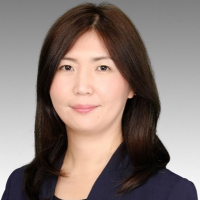 Dr. Okamura holds a Ph.D. degree from Ochanomizu University in sociology, specializing in family sociology. Her women’s leadership research project, in which she serves as principal investigator, is supported by the Japan Society for the Promotion of Science under the KAKEN Grant-in-Aid for Early-Career Scientists (2020-2023).
Dr. Okamura holds a Ph.D. degree from Ochanomizu University in sociology, specializing in family sociology. Her women’s leadership research project, in which she serves as principal investigator, is supported by the Japan Society for the Promotion of Science under the KAKEN Grant-in-Aid for Early-Career Scientists (2020-2023).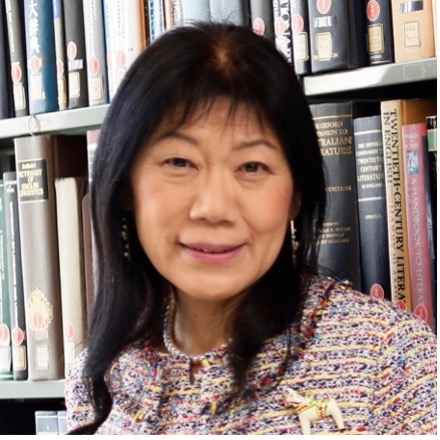 Yoko Totani is Professor at the Graduate School of Humanities and Sciences and Director of the Institute for Gender Studies at Ochanomizu University. She holds an M.F.A. in theatre criticism and dramaturgy from Columbia University. While a graduate student at Columbia, she worked on Japanese traditional/contemporary theatre productions such as Kabuki, Bunraku, and Noh, as well as Japanese avant-garde theatres performing in New York City. She also worked as an assistant to the avant-garde theatre director/playwright Lee Breuer and his company Mabou Mines. Her essays, which appear in academic journals and other publications, mainly center on theatre and performance, cultural politics, and playwrights such as Gertrude Stein, Tennessee Williams, Sam Shepard, and Maria Irene Fornes. She co-authored books which include Keywords of Performance Studies: An Introduction to Critical Cultural Studies (Sekaishisosha 2011).
Yoko Totani is Professor at the Graduate School of Humanities and Sciences and Director of the Institute for Gender Studies at Ochanomizu University. She holds an M.F.A. in theatre criticism and dramaturgy from Columbia University. While a graduate student at Columbia, she worked on Japanese traditional/contemporary theatre productions such as Kabuki, Bunraku, and Noh, as well as Japanese avant-garde theatres performing in New York City. She also worked as an assistant to the avant-garde theatre director/playwright Lee Breuer and his company Mabou Mines. Her essays, which appear in academic journals and other publications, mainly center on theatre and performance, cultural politics, and playwrights such as Gertrude Stein, Tennessee Williams, Sam Shepard, and Maria Irene Fornes. She co-authored books which include Keywords of Performance Studies: An Introduction to Critical Cultural Studies (Sekaishisosha 2011).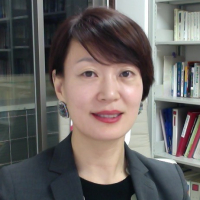 Ki-young Shin is Professor in the Graduate School of Humanities and Sciences and the Institute for Gender Studies at Ochanomizu University. Ph.D. in Political Science. Her research interests include women’s political representation, comparative women’s movements, #MeToo, and gender policies in East Asia. She organized an East Asian Research Network on Gender and Diversity in Political Representation (WondeR) for comparative research on women’s political representation in Japan, Korea, and Taiwan. In 2018, she co-founded the Academy for Gender Parity for women’s political leadership education. She has published a book, Gender and Power (Palgrave McMillan 2015), as well as Japanese and Korean books.
Ki-young Shin is Professor in the Graduate School of Humanities and Sciences and the Institute for Gender Studies at Ochanomizu University. Ph.D. in Political Science. Her research interests include women’s political representation, comparative women’s movements, #MeToo, and gender policies in East Asia. She organized an East Asian Research Network on Gender and Diversity in Political Representation (WondeR) for comparative research on women’s political representation in Japan, Korea, and Taiwan. In 2018, she co-founded the Academy for Gender Parity for women’s political leadership education. She has published a book, Gender and Power (Palgrave McMillan 2015), as well as Japanese and Korean books.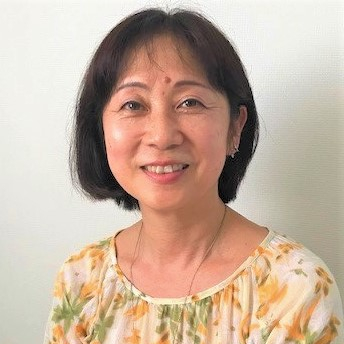 Yukari Semba is Project Lecturer at the Institute for Gender Studies at Ochanomizu University. Ph.D. in Human Sciences. Her research focuses on bioethics and gender studies. She explicitly addresses ethical and gender issues related to assisted reproductive technology. She has published a book, Chi no Tsunagari wo Koete: Teikyo Seishi, Teikyo Randhi, Yoshi de Dekita Kazoku no Monogatari (Ningen to Rekishi sha, 2020), and two book chapters (11 & 12) in Comparative Perspectives on Gender Equality in Japan and Norway(Routledge 2021)as well as journal articles and other book chapters.
Yukari Semba is Project Lecturer at the Institute for Gender Studies at Ochanomizu University. Ph.D. in Human Sciences. Her research focuses on bioethics and gender studies. She explicitly addresses ethical and gender issues related to assisted reproductive technology. She has published a book, Chi no Tsunagari wo Koete: Teikyo Seishi, Teikyo Randhi, Yoshi de Dekita Kazoku no Monogatari (Ningen to Rekishi sha, 2020), and two book chapters (11 & 12) in Comparative Perspectives on Gender Equality in Japan and Norway(Routledge 2021)as well as journal articles and other book chapters.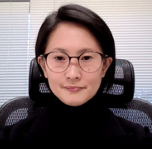 Keiko Hirano is Project Lecturer at the Institute for Gender Studies at Ochanomizu University. Ph.D. in Social Science/Gender and Development. She specializes in Transnational Sociology, Gender studies, and Indonesian Area Studies. Her recent works are “Thinking about ‘home economics’ from the phase of paid domestic work” in Gendai Shisou (Modern Thoughts), (Seidosha, 2022), and a book chapter in Transnational Sociology of Domestic Work: In Quest of Decent Work, (Ruri ITO ed., Jimbun Shoin, 2020).
Keiko Hirano is Project Lecturer at the Institute for Gender Studies at Ochanomizu University. Ph.D. in Social Science/Gender and Development. She specializes in Transnational Sociology, Gender studies, and Indonesian Area Studies. Her recent works are “Thinking about ‘home economics’ from the phase of paid domestic work” in Gendai Shisou (Modern Thoughts), (Seidosha, 2022), and a book chapter in Transnational Sociology of Domestic Work: In Quest of Decent Work, (Ruri ITO ed., Jimbun Shoin, 2020).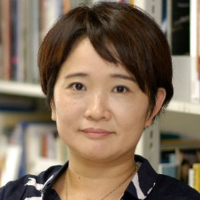 Fumie Ohashi is Associate Professor in the Graduate School of Humanities and Sciences and the Institute for Gender Studies, Ochanomizu University. Her research interests focus on gender and migration in the reproductive sphere of Mainland China, Hong Kong, and Chinese-speaking communities in Japan. Currently, she is working on the labor relations and labor movements of migrant and local domestic workers in Hong Kong. She is also interested in transnational and translocal women’s activisms in East Asia. She had published a book, Migrant Domestic Workers in Contemporary China: The Politics of Reproductive Labor in Rural-Urban Relations (Ochanomizu Shobo, 2011), as well as journal articles and book chapters.
Fumie Ohashi is Associate Professor in the Graduate School of Humanities and Sciences and the Institute for Gender Studies, Ochanomizu University. Her research interests focus on gender and migration in the reproductive sphere of Mainland China, Hong Kong, and Chinese-speaking communities in Japan. Currently, she is working on the labor relations and labor movements of migrant and local domestic workers in Hong Kong. She is also interested in transnational and translocal women’s activisms in East Asia. She had published a book, Migrant Domestic Workers in Contemporary China: The Politics of Reproductive Labor in Rural-Urban Relations (Ochanomizu Shobo, 2011), as well as journal articles and book chapters.